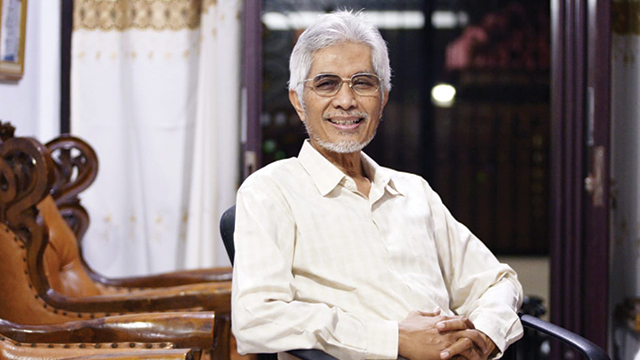Bogor (Greeners) – Despite of its vast biodiversity richness and being a member of global coalition, Indonesia keeps on losing its biodiversity. In addition, the country’s national policy is criticized for leaning to economics and politics rather than environment.
Endang Sukara, member of Indonesian Academy of Sciences and Professor at National University, said three major biodiversity conservation issues are, — the policies do not touch biodiversity, it requires long-term commitment, and bio-ethics has never been the foundation for policies on sustainability.
Furthermore, Sukara said that Indonesia has ratified Convention on Biological Diversity (CBD), which was held in Rio De Janeiro, Brazil, in 1992. In addition, Indonesia is actively participating in Climate Change Convention (UNFCCC) and declaration on environment and development.
He said that biodiversity convention is the core of Earth Day celebration which took “Protect Our Species” as this year’s theme.
“Unfortunately, this biodiversity convention does not really attract attention, though Indonesian government had ratified the convention under the 1994 Law,” he said in Bogor, on last Tuesday. “However, commitments from public and government are lacking. The proof, our biodiversity keeps on missing, meanwhile, the aim of the convention is to protect our rich biodiversity.”

Endang Sukara, member of Indonesian Academy of Sciences and Professor at National University. Photo: Endang Sukara
The reason is, he added, because of unsustainable biodiversity management. As a result, Protocol Nagoya was agreed in 2010 which underlines prior informed consent from originating nation before accessing genetic resources.
“Protocol Nagoya is specialized on benefit sharing of biodiversity resources, benefit sharing of traditional knowledge, for instance communities who have been consuming herbs for many years, if someone wants to use it, there will be regulations and it’s already explained in the convention. In addition, benefit sharing of researches which give added value to biodiversity,” he said.
READ ALSO: Indonesia Not Ready To Implement Nagoya Protocol
He said that greed and biopiracy has reduced Indonesia’s forest covers, currently less than 19 million hectares out of 120 million hectares. The covers rapidly declining in the 1980s, during President Soeharto administration, who used to control millions of hectares of lands via Lands Ownership Rights.
“We are fortunate for 50 conservation areas, however there are interventions from other parties, such as lack of national parks monitoring and land expansion. If [we are] willing to clear forests for industrial plantation forest, then that’s okay, if [forests] turn to cities, that’s also okay. Those are only exploiting natural resources but not planting. Instead, they plant palm oil and acacia, which are different, no longer as primary forest,” he said.
He said that Earth as human’s carrying capacity drastically declining and in peril. It is obvious as water being polluted, with Indonesia ranked as the second highest polluted oceans in the world.
“The pollution also violates bio-ethics. It is unethical to Earth if that’s how we treat Earth. In policies, science technology and culture should be considered. [However], all influences in politics and investments have bring no benefits,” he said.
Reports by Dewi Purningsih



















































